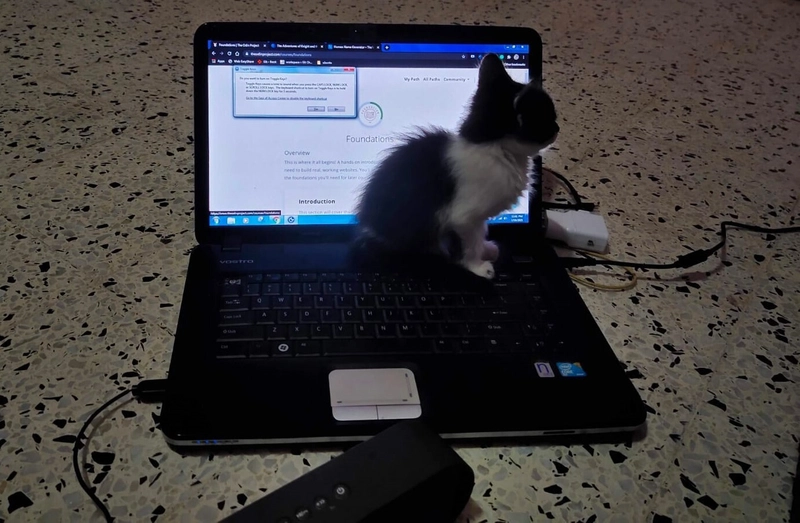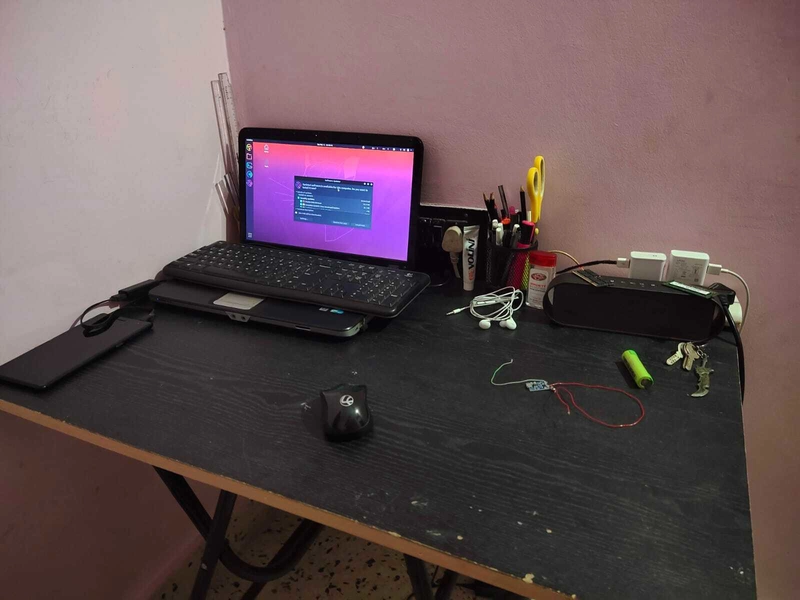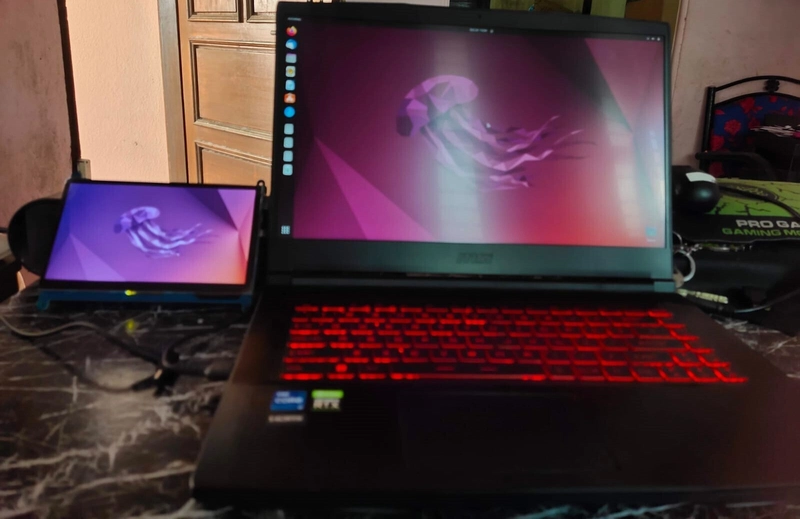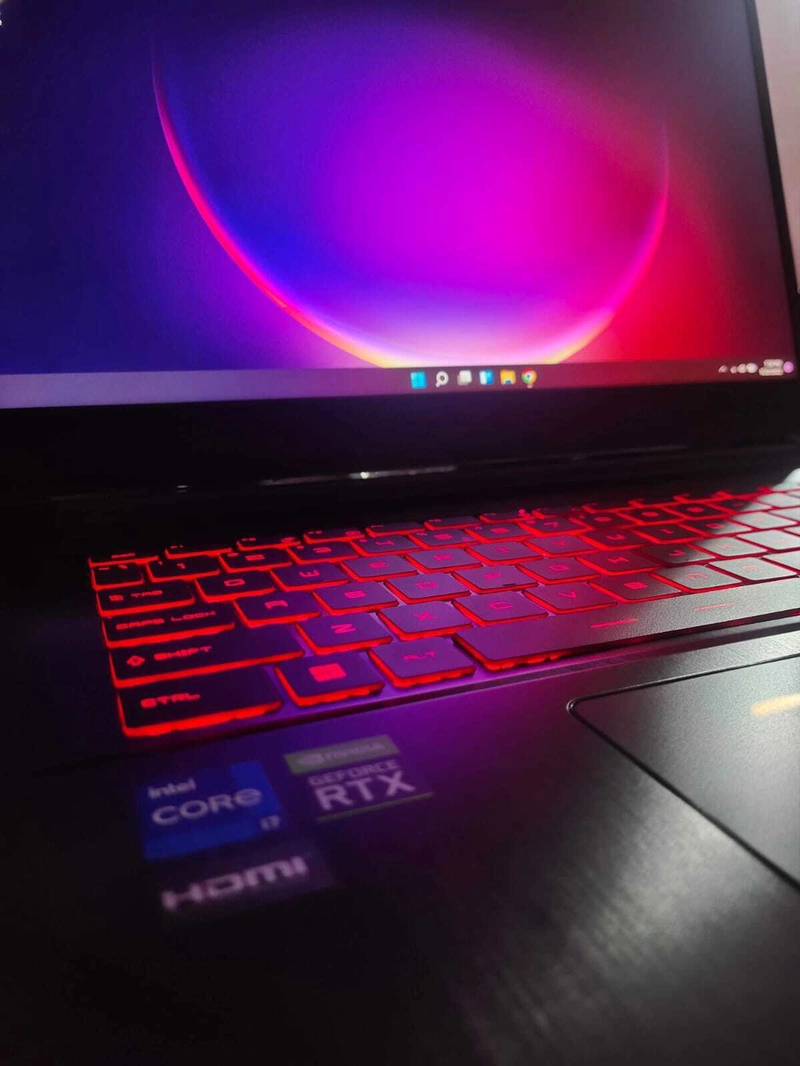Most people see laptops as tools. For me, my 11-year-old Dell, lovingly called “Tractor” for its noisy fan, was more than that—it was a companion, a challenge, and an unyielding teacher. From its broken hinge to its dead keyboard, Tractor pushed me to my limits at every step. But it also shaped me into the developer I am today.
Facing the Challenges Head-On

Tractor wasn’t just old; it was stubborn. Booting up sometimes took over an hour, and installing software often meant hunting down compatible versions from the depths of obscure forums. Its fan, obstructed by a worn-out casing, growled like a tractor plowing fields. And crashes? They were a regular occurrence, often right after a painfully long compilation process.
On top of that, Tractor’s keyboard had given up, and its hinge was broken, making it a delicate balancing act just to use the screen. While my peers worked on modern laptops, I was stuck with this antique. But rather than letting it hold me back, I leaned into its challenges.
Turning Obstacles Into Opportunities

The limitations of Tractor forced me to adapt and think critically. While my classmates completed tasks in five simple steps, I often had to find workarounds for every single one. Tasks that seemed trivial to others became opportunities for me to develop creative problem-solving skills. Debugging, optimizing performance, and learning how systems worked under the hood weren’t just options—they were survival tactics.
When Tractor couldn’t handle advanced projects, I turned to cloud solutions. Using AWS EC2 instances allowed me to continue developing when my local machine couldn’t keep up. At the time, I didn’t realize I was gaining early exposure to cloud computing, but those skills later became invaluable in my journey as a backend and AI/ML engineer.
A Fresh Start with New Tools

P.S: I didn't have any good pics of MacBook 😅
In 2022, I moved to a 2011 MacBook Pro—still outdated, but a significant step up. While the MacBook’s performance was better, its inability to support modern macOS versions brought its own set of challenges. I had to find workarounds for newer software, just as I had with Tractor. But after years of overcoming obstacles, nothing felt impossible anymore.
Looking back, my upgrade to a newer machine, the MSI GF63 Thin, was a significant step forward. It featured an 11th Generation Intel Core i7-11800H processor, 8GB DDR4 RAM, 512GB NVMe PCIe Gen3x4 SSD, and the NVIDIA GeForce RTX 3050 graphics card with 4GB of GDDR6 memory. This combination provided the performance boost I needed for demanding tasks, smoother multitasking, faster load times, and more reliable performance compared to the older machines I was used to. The improved graphics card also enhanced my development environment and light gaming experiences. This upgrade revealed just how much my previous struggles had prepared me for the challenges that lay ahead.

What I Learned Along the Way
Tractor reshaped how I approached challenges, teaching me to think critically and develop creative solutions. Adaptability became second nature when working with its constant limitations. While it was frustrating to deal with crashes and long boot times, those moments tested my tolerance for setbacks. As for patience.... well, I’m still working on it.
This experience also fostered a deep empathy for others struggling with limited resources. I know what it feels like, which is why I’m always willing to share tips, tools, and workarounds with those in similar situations. Lastly, Tractor taught me gratitude. While the old machine instilled resilience, my newer tools have made my work more efficient, and I now have an immense appreciation for progress.
Advice for Others in Similar Situations
If you’re stuck with an old machine, don’t lose hope. There are practical strategies that can ease your challenges and make the most of your resources. First, consider switching to a lightweight system like Linux, specifically Ubuntu, to optimize performance on older hardware. You’d be amazed at how much smoother things can run. When your local machine can’t handle heavy workloads, don’t hesitate to leverage cloud tools like AWS EC2 instances to offload demanding tasks. Additionally, always make backing up your work a priority; older machines are prone to crashes, so regularly use Git and keep multiple backups to safeguard your progress. Finally, embrace creativity in downtime—if you’re waiting for your laptop to boot or compile, utilize that time for planning, writing pseudocode, or researching better workflows. These small adjustments can significantly enhance your experience while working with limited resources.
The Moments That Made Me Smile (and Groan)
There were plenty of moments with Tractor that, in hindsight, are almost funny. Waiting an hour for the laptop to boot was a regular occurrence. Sometimes, after a painfully long compilation, the system would immediately crash. And let’s not forget the noise—a grinding, clunky fan that sounded like a tractor in overdrive.
Over time, Tractor became more than just a machine. It was part of my personality. It taught me patience, resilience, and the value of hard work. I even gave it its quirky nickname because, honestly, it earned it.
The Final Takeaway
Tractor may have been loud, slow, and outdated, but it played a significant role in shaping my journey as a developer. It prepared me for challenges I never anticipated and made me the developer I am today. When I look back on my journey, I realize that my struggles with Tractor weren’t just technical hurdles—they were life lessons in disguise.
To anyone out there working on an old, underpowered machine: hang in there. The skills and resilience you’re building today will stay with you forever. And who knows? Someday, you might look back on your struggles with a smile and a story worth sharing.
To wrap things up, I’d like to share a glimpse of the setup I currently use—a testament to how far I’ve come since my days with Tractor.






Top comments (0)